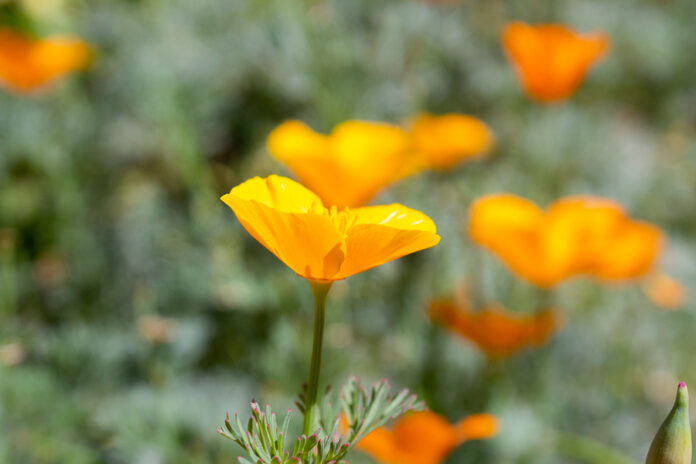Crowds of people taking pictures of the California super bloom has caused damage to the flowers, calling into question the role of pictures and social media in nature
The “super bloom” of wildflowers in California this spring has been gorgeous; it’s undeniably special to see the normally dry, brown hills blanketed with colorful blossoms, especially after the past few years of drought. Their arrival reveals a dark side, though. The widespread news coverage has sparked an overwhelming flurry of tourism in parks like the Anza-Borrego State Park near San Diego, and the attention has not left the flowers unharmed: in search of the best pictures, visitors are wandering out into the wildflower fields, creating new trails and crushing blooms in what USA Today called (a little dramatically) a “super bloom apocalypse.”
People wreaking havoc in the righteous quest for the perfect Instagram shot is not a new phenomenon: stories of people actually dying both in parks and urban areas for a selfie with a bear, a cliff or an oncoming train are shockingly common. These strange, morbid stories are a testament to the weird disassociation we feel when taking a picture — especially when that picture comes with bragging rights.
As social media has taken off in the past few years, more and more people filter their experiences through pictures meant for sharing, especially when they’re outside. Pictures of beautiful places have long dominated advertising, and it’s hard for me not to see the impulse to photograph and share pictures of the outdoors as something of the same thing. It’s a way of cashing in on natural beauty for brand development — in this case, a personal brand.
When my phone dings with a picture my mom took on her last hike, I feel genuinely happy, glad to be included in her experience. But I’ve also been on trips with friends where taking pictures of what we were doing felt more important than experiencing it. The genre of carefully-posed shots on Instagram with John Muir quotes for captions often leaves me feeling a little disillusioned about the whole thing.
I’m over people bagging on technology and social media; that’s not what I’m here to do. In another context, I’d defend they way that social media is getting people outside by sharing the excitement of exploring new places (which it does), and if posts of people looking hot in Lululemons in front of Half Dome makes caring about nature cool (which it does), please show out and fill up your camera roll. If I’m really being honest with myself, I don’t know if I would have ever tried climbing if I hadn’t been seduced by online posts — I still use Instagram to find places I want to go, scrolling through the explore page and then checking location tags to add adventures to my bucket list.
But for every shot of Devil’s Tower that makes me swear I’m gonna make it there this summer, there’s a picture — like the one that Miley Cyrus recently got flak for — of someone intentionally or unintentionally disrespecting the place they’re in for some kind of social caché. In an attempt to associate themselves with somewhere special, people put the picture above the place, undermining and sometimes damaging the place they’re exploring.
I’ve come across a lot of pictures of the California super bloom, on both news outlets and social media sites, taken by professionals and casual observers — even some taken from space. The vast majority were taken from only a few parks close to the California-Mexico border, which strikes me as strange, and a little sad: there are wild blossoms all over California this year, sprouting out of the ground to celebrate the end of a particularly brutal drought, and they’re pretty thrilling even in small numbers.
The idea that a picture with one particular field of flowers is somehow important, worth the traffic jams and environmental destruction, is a testament to the insane way we appreciate nature right now.
Written by: ANNA KRISTINA — akmoseid@ucdavis.edu





